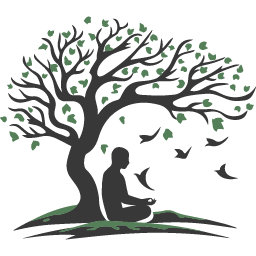Table of Contents
Introduction
Empathy is a remarkable human trait. It is the ability to understand and share the feelings of others, to step into their shoes and see the world through their eyes. Yet, as powerful and necessary as empathy is, there is a significant distinction between healthy and unhealthy empathy. While the former helps us foster connections and provide emotional support, the latter can leave us drained and burdened by the pains of the world.
The Genesis of Empathy
Contrary to popular belief, we are not born with empathy. Just as an artist doesn’t emerge from the womb with a paintbrush in hand, our empathetic abilities are not innate. They are shaped by our life experiences, notably by the trials and tribulations that introduce us to pain and grief. Our ability to empathize grows as we navigate these challenging times, making empathy not a born trait, but a learned one. Therein lies its beauty – empathy is a testament to our resilience and ability to grow from hardship.
Empathy as an Experience
True empathy extends beyond mere understanding; it is about personal association. Just as the thrill of a bungee jump cannot be fully grasped through descriptions alone, empathy necessitates a first-hand encounter with the emotion in question. It is through our experiences that we come to understand the depths of sorrow, the pangs of grief, or the weight of despair that others carry.
"The highest form of knowledge is empathy."
Understanding Empathy as a Skill
Much like any other skill, empathy has its levels. Initially, we may just feel for others. Over time, this sensitivity might intensify, transforming us into empaths who carry the weight of others’ emotions. While this ability to deeply connect with others may seem noble, it can also become a burden that is hard to lay down. This is where the differentiation between healthy and unhealthy empathy becomes crucial.
Unhealthy Empathy
Unhealthy empathy is like an emotional sponge that absorbs others’ pains without wringing out. A fitting Buddhist fable illustrates this. A monk carries a woman across a muddy path to spare her dress. When questioned by a fellow monk about his breach of their rules, the monk replies, “Are you still carrying her?” This story embodies the pitfall of unhealthy empathy – holding on to others’ problems for too long. For doctors, nurses, therapists, and counselors, this could mean carrying the pain of each patient, an emotional toll that could hinder their ability to function.
Healthy Empathy
Healthy empathy, in contrast, is about resonating with others’ pain but not carrying it with you. It’s about deeply connecting with others’ experiences without letting their suffering consume you. This doesn’t mean adopting an attitude of professional disconnection, because that’s not empathy at all. Healthy empathy is about using our experiences to understand theirs and then letting go, recognizing that it’s not our pain to carry.
The Pitfalls of Unhealthy Empathy
Unhealthy empathy can be self-destructive and harmful to relationships. Imagine a scenario where a loved one shares their suffering with you. If you, in your empathetic endeavor, dwell on their pain to the point where it starts affecting your mood, you’re not helping them but rather amplifying the negativity. In this shared pit of misery, the noble intent of empathy is lost, replaced by shared suffering.

Navigating Empathy in Everyday Life
Emotions, including empathy, are transient. They come and go, ebb and flow, depending on our circumstances. There’s no point in holding on to the feelings of empathy when you’re not with the person in question. It’s crucial to maintain a balance, to engage deeply with others’ feelings when present, but to let go when apart. Healthy empathy is not about being less caring; it’s about being empathetic without letting it consume your well-being.
Conclusion
Empathy is indeed a beautiful and potent trait. It allows us to understand others deeply, to connect with them in profound ways. It’s a skill to be proud of, one that enriches our interactions and human experiences. But like all good things, it requires balance. Strive to develop healthy empathy, the kind that allows you to empathize without sinking into the depths of others’ pain. Empathy is not a burden to bear but a bridge to connect and understand. As you navigate the journey of empathy, remember, your empathy is a beacon of understanding, but it shouldn’t leave you lost at sea.
I recommend you listen to my podcast Don’t Let Empathy Destroy You
You've just read an article by Steven Webb — Guiding you through the most difficult times. Here is a link to my podcast Stillness in the Storms and Inner Peace Meditations.
I write to arm you with resilience and inner wisdom, helping you find calm in life’s chaos. Follow me Medium or on substack.

